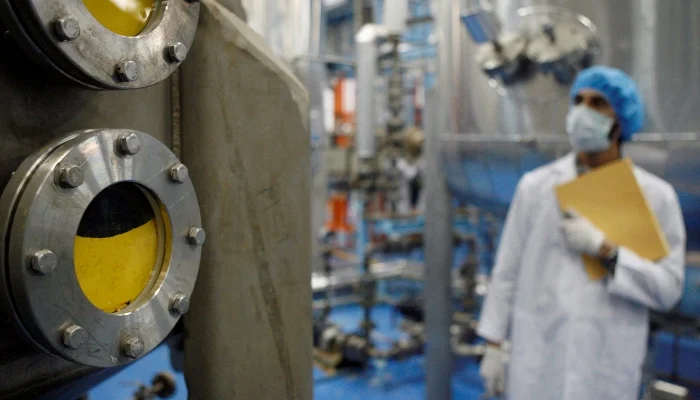Despite growing Western anxieties that Iran might be pursuing nuclear weapons and following the postponement of talks with the United States, Tehran on Saturday asserted its “right” to enrich uranium.
Foreign Minister Abbas Araghchi stated on X that “Iran has every right to possess the full nuclear fuel cycle,” referencing Tehran’s long-standing membership in the Nuclear Non-Proliferation Treaty (NPT).
“There are several NPT members which enrich uranium while wholly rejecting nuclear weapons,” Araghchi noted.
Under the NPT, signatory nations are obligated to declare their nuclear stockpiles and subject them to the oversight of the UN’s nuclear watchdog, the International Atomic Energy Agency (IAEA).
The United States and other Western nations have long accused Iran of seeking nuclear weapons — an accusation Tehran denies, maintaining that its atomic program is solely for civilian purposes.
Iran and the United States have been engaged in nuclear discussions since April 12, marking their highest-level engagement since Washington’s withdrawal from a significant agreement with Tehran in 2018, during Donald Trump’s initial term as US president.
A fourth round of talks, initially scheduled for Saturday, has been postponed, as announced earlier this week by mediator Oman, who cited “logistical reasons.”
In a Thursday interview with Fox News, US Secretary of State Marco Rubio urged Iran to “walk away” from enrichment, asserting that “the only countries in the world that enrich uranium are the ones that have nuclear weapons.”
Iran is currently enriching uranium to a purity of 60% — significantly above the 3.67% limit stipulated in the 2015 accord with the United States and other global powers, but below the 90% necessary for weapons-grade material.
This stockpile remains a source of concern for Western powers.
On Monday, French Foreign Minister Jean-Noel Barrot stated that Iran was “on the verge of acquiring nuclear weapons” and suggested that UN sanctions could be reimposed if Tehran’s actions posed a threat to European security.
Iran dismissed the remarks from France — a signatory to the 2015 nuclear deal — as “simply absurd.”
Araghchi has previously declared Iran’s right to enrich uranium as “non-negotiable.”
IAEA chief Rafael Grossi stated on Wednesday that the enriched material “can be easily dissolved” or “shipped out” of Iran.
Last month, Iranian government spokeswoman Fatemeh Mohajerani described the transfer of enriched material as a “red line.”
Rubio suggested that Iran should permit inspections of its nuclear facilities, including those conducted by US experts.
Tehran has insisted that the discussions with Washington should exclusively focus on the nuclear issue and the lifting of sanctions, ruling out negotiations regarding its regional influence and military capabilities.
Last week, Israeli Prime Minister Benjamin Netanyahu asserted that a credible agreement must “remove Iran’s capacity to enrich uranium for nuclear weapons” and prevent the development of ballistic missiles. Araghchi responded by accusing Netanyahu of “dictating” US policy.



